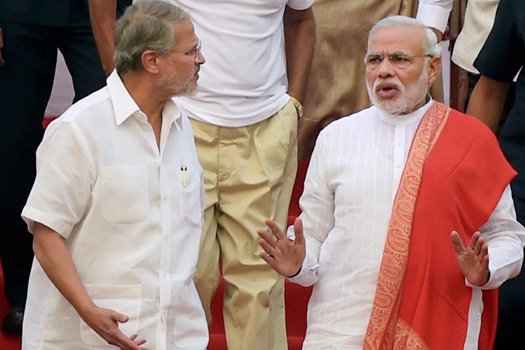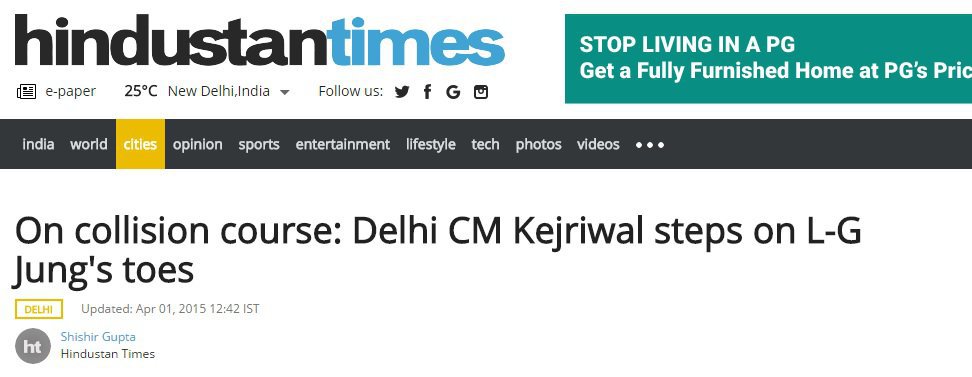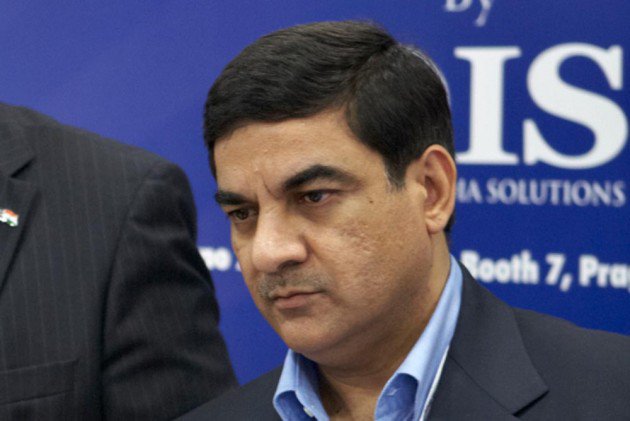A report in the Frontline magazine published recently made some pretty damning allegations against a senior journalist in Delhi. The report hints that Hindustan Times Executive Editor Shishir Gupta may be passing confidential information to the PMO and BJP President Amit Shah.
Here is what the report says in a nutshell:
- That former Lieutenant Governor of Delhi, Najeeb Jung, submitted his resignation to the PMO, instead of the MHA as per protocol, thereby “publicly confirming the Prime Minister’s association with an issue linked to the administration of Delhi.”

- The report has carried an email from Shishir Gupta sent to BJP president Amit Shah and Officer on Special Duty in the PMO, Hiren Joshi, on March 28 2015 with the subject ‘Kejriwal against Centre’. The email lists 10 instances of “violations by Kejriwal”. Curiously, the email seems to be merely passing information because it seeks no response from the officials on the matter
- On the basis of RTI information, Frontline has further said that just three days later on March 31, PMO’s top officials jumped to action and asked for a “factual report” on the email in less than five days.
- On April 1, four days after the email, a story by Gupta titled ‘On collision course: Delhi CM Kejriwal steps on L-G Jung’s toes’ was published in HT as the lead. The story said that Kejriwal was asking officials to access those files that actually fall under Lieutenant General, like matters pertaining to police, public order and land, thereby hinting that Kejriwal was clearly violating his limited powers.

How has Kejriwal reacted after the report?
After the Frontline report was published, Kejriwal, several AAP leaders and supporters promptly labelled Shishir Gupta as a “PMO’s man”. Kejriwal appealed to HT to sack Gupta, even going on to the extent of holding a press conference on the issue.
Executive Editor of HT gets PMO to act against AAP govt in Delhi. Will Shobhna Bhartiya sack her editor? HT’s credibility at stake https://t.co/HAxe1LEJtA
— Arvind Kejriwal (@ArvindKejriwal) January 5, 2017
Hindustan Times Executive Editor reporting to headquarters… pic.twitter.com/u1u5HdmZv7
— Krishan Partap Singh (@RaisinaSeries) January 5, 2017
The ball now in Shishir and Hindustan Times’s court, the newspapers published its defence today.
HT has denied Kejriwal’s allegations that its reporter colluded with the BJP government to destabilise AAP, saying:
- Gupta’s email was “nothing more than the outline of a story he was proposing to write”
- The email followed phone conversations with the offices of Amit Shah and PMO so the question wasn’t listed in the email. HT admits it was “unusual journalistic practice”
- Gupta went ahead with his story because neither the PMO nor Shah responded.
So, does the Hindustan Times’ defense has merit?
Does Gupta’s questionable email really falls under “unusual journalistic practice”? It does.
Journalists have no fixed guidelines, and there can never perhaps be, on how they investigate stories and dig out scoops. Emails and phone conversations often happen simultaneously and so, unlike other professions, journalists have no obligation to keep everything in writing.
But then, Gupta has been under the scanner in the past:
- Call record details accessed by Outlook magazine in June raised questions on Gupta’s association with controversial arms dealer Sanjay Bhandari, because it showed a whopping 478 calls made by Gupta to Bhandari in a short span of time

- After P Chidambaram and Arun Jaitley jointly released Gupta’s book called Indian Mujahideen, there were speculations that he was close to the leaders. This speculation further got a boost when Gupta was appointed as a Member of the Executive Council of the government-run Indian Institute of Mass Communication last year

















